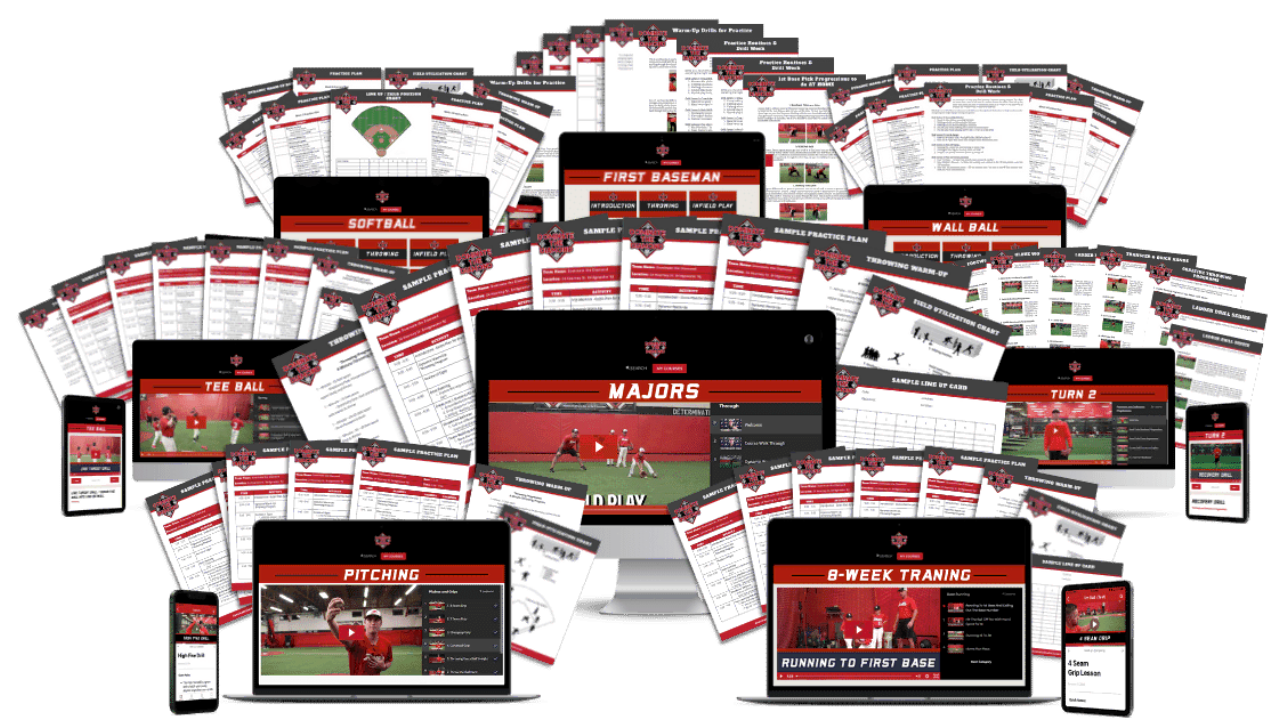Simple Tips To Involve Parents In Your Baseball Practices

Running youth baseball practices smoothly, with kids engaged and learning, is like coming up with a great play. It involves coordination, teamwork and dedication. One key strategy that we use with our Zoned teams to create our best practices is including parents in practice sessions. It’s not just about maintaining structure and focus but developing a united team spirit where everyone, including parents contributes to the team’s success.
Imagine those loud cheers from the sidelines, not just during games but also in training sessions. It creates a buzz of encouragement and camaraderie. But it’s more than just cheers - when parents are involved they can lift the workload for coaches by setting up drills, helping with equipment, or sharing their own expertise. From coordinating snack schedules to leading specialized baseball drills, there are so many roles parents can play to make a big impact.
Simple and Impactful Ways to Make Partners out of Parents
Ask Parents to Participate
The more help, the better - especially with younger teams. Parents who are new to the game are always eager to pitch in. When it comes to a crew of 8-year-olds, keeping kids organized and moving between drills is a lifesaver. Having another adult nearby can streamline practices and limit standing around time.
Run a Parents Meeting
Ask parents if anyone has experience coaching, even if it’s not specific to baseball. Any parent who has volunteered on a youth sports team will have organizational skills that are invaluable. They can also bring fresh ideas to keep kids on task and add new skills that can easily translate into baseball.
Lead a “Coaches/Parents Clinic”
Many parents might feel nervous by the idea of coaching. Providing them a stress-free environment where they can learn alongside other coaches can help them feel more comfortable and willing to assist.
Share Practice Plans with Parents
Letting parents know what will be covered in practice can bring about surprising results. Sharing your practice plans through email gives parents a chance to see what drills might be a good fit for them. This adds a new level of knowledge to sessions.
Assign Responsibilities Pre-Season
Meet with assistant coaches and involved parents before the season starts to delegate specific tasks. For example, assign a parent with pitching experience to work with the pitchers. This specialization can improve the skill level of players and relieve you of some of the work.
Organize In-Game Responsibilities
Just like practice, in-game organization is important. Give out jobs like handling pitchers and catchers, defensive alignment and positioning and managing hitters to different parents. During a high-stakes game, divvying up responsibilities will mean your team is well-coordinated and the kids weren’t overwhelmed by too many voices.
Set Up Weekly Planning Meetings
Regular in-person or phone meetings to talk about upcoming practices can help keep everyone on the same page. Weekly calls where parents can suggest drills and offer feedback on what is and what isn’t working can be incredibly valuable.
Boosting parental involvement in your youth baseball team can greatly improve the overall experience for plates and coaches alike.
Practical Tips for Getting Parents Engaged
Have an Open Door Policy
Encourage parents to join practices, offer advice, and assist in any way they can. An open door policy says “We’re all in this together.” Making parents feel welcome and appreciated creates a supportive community around your team.
Communicate Clearly
In pre-season meetings and throughout the season, have conversations about the importance of keeping practices fun, fast-paced, and development-focused. Stress the fact that all help is appreciated, and experience isn’t necessary if you want to be involved. A simple, “We need all hands on deck to make this season great,” can go a long way.
Highlight the Non-Sport Aspects of a Team
Let parents know that while they might not be able to offer baseball-specific expertise, they can still help with teaching life lessons like resilience, teamwork, leadership, and communication. Talking about how to handle things like adversity and mindset is incredibly important for future success.

As you prepare for the season knowing how to communicate the importance of parental involvement can set the stage for a connected and thriving team dynamic.
Just Ask for Help
Explain the Importance Early On
Early in the season, it’s important to underscore the critical role a good coach ratio plays. Explain that having parents help makes a huge difference in terms of skill development, organization and ensuring a smooth, structured practice. We often tell parents, “Your involvement is key to our kids’ growth and enjoyment.”
Be Specific
When asking for help, be clear about what you need. Instead of a vague request for assistance, outline the specific roles or tasks that they can undertake. For example, “We need someone to run the batting stations next practice.” This will make parents more likely to step up without feeling overwhelmed or confused.
Involving parents in practices can be incredibly helpful for your youth baseball team. It improves the organizational flow, keeps kids engaged and builds a supportive community around the team. By inviting parents to participate in various ways - whether they know the sport or not - you create a better experience for players. This generates a positive environment for everyone.
Remember, no coach has it all figured out, and parents can provide that extra support they need to create a winning team both on and off the field.
By following these tips and strategies, coaches can be part of a joint effort that benefits players, parents, and the team as a whole.
One great way you can help parents become more involved is to encourage them to learn from our extensive library of skill drills and mental toughness trainings. Share the coupon code: PARENTS20 with your team’s parents and they can save 20% off our Rookies course. Click here to see what’s included the Rookies Online Coaching Course.








